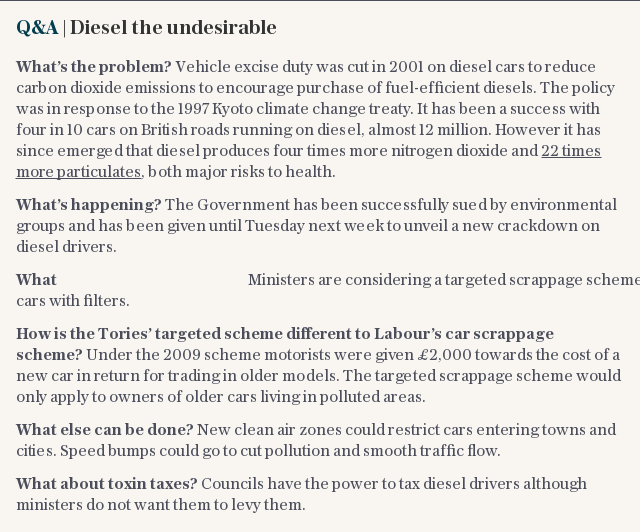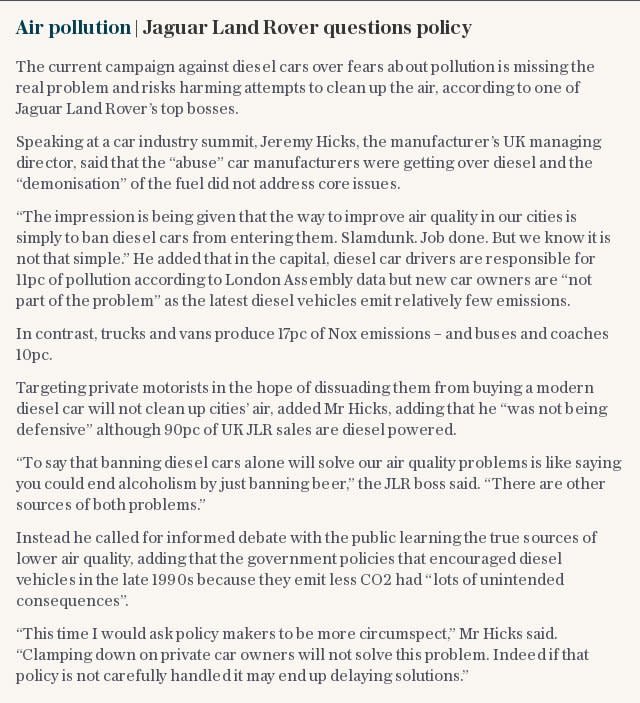End game for diesel as more drivers plan to go green

The number of diesel cars on the road could halve in a little over a decade as green vehicles overtake traditional forms to become the dominant mode of transport.
The number of diesel cars sold each year in Europe is expected to collapse from 9.5m out of a total of almost 19m currently to just 2.1m by 2030, while 15m of the 24m cars sold by then will be hybrid or electric vehicles.
The shock findings, which suggest the car industry is on the brink of being turned upside down come in a new study from consultancy AlixPartners. The prediction will cause alarm at carmakers which have been slow to embrace the electric revolution.
Andrew Bergbaum, managing director for automotive at AlixPartners, said: “The end of the internal combustion engine is now a reality, with Volvo’s announcement that all new models would be electric or hybrid within two years and the French government’s decision to ban internal combustion engines from 2040.”

Petrol-powered vehicles fare better than diesel, but their market share is still expected to almost halve from 44pc to 25pc over the same time frame. The dominant form of power will be hybrid vehicles. Combining small engines and electric power systems, they will represent almost 30pc of the market. At the moment hybrid and electric vehicles account for less than 5pc of sales globally Alix predicts that hybrid, together with battery-powered vehicles will represent more than 65pc of all new vehicles sold in 2030.
The research also found that Jaguar Land Rover (JLR) leads the race in green vehicle investment. Last year JLR sunk €7,317 (£6,429) in capital expenditure and R&D into each vehicle, ahead of BMW and Daimler at about €4,500 per vehicle. This is despite JLR producing about 500,000 vehicles a year, a quarter of the amount of its German competitors. VW, GM and Toyota, which each produce nearly 10m cars a year, put between €2,524 and €3,489 into each car.

The rise of electric vehicles will be fuelled by lower assembly costs. Alix’s research shows that electric vehicles – which do not need complex gearboxes and drivetrains – can be assembled in just 3.7 hours, compared with 6.2 hours for a traditional engine.
Manufacturers will face a productivity puzzle with hybrid engines though, which despite their popularity take 9.3 hours to build because of the complexity of combining both electric and internal combustion technologies.
Mr Bergbaum warns that firms will have to find new ways of working to accommodate the shift to electric, though, and this could see mergers. “A number [of manufacturers] have been able to make considerable efficiency savings which have helped fund short-term capital expenditure and R&D. This is not a sustainable position over the longer-term without fundamental changes to production, and the amount of investment required is going to continue to increase. Efficiency savings are only putting off the inevitable consolidation that will need to happen.”


 Yahoo Finance
Yahoo Finance 